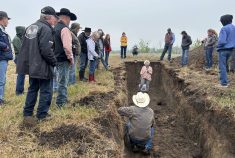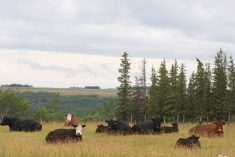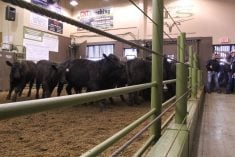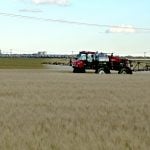Back in February, we ran a feature on volunteers at beef shows, written by our field editor, Melissa Jeffers-Bezan (“Beef shows work to rebuild volunteer base post-COVID”).
Brian Hadland, who wrangles the barn bosses at Canadian Western Agribition, had a little tidbit of advice that didn’t make it into the article, but did stick with me. Hadland told Jeffers-Bezan that all the barn bosses meet first thing every morning. They discuss any problems and usually solve those problems before anyone else even knows about them. This isn’t earth-shattering, but it’s a common-sense example of how to work as a team and troubleshoot.
It also made me think that one of the best reasons to volunteer is to pick up and apply some of these approaches in the rest of the world. Volunteering is a great way for young people to gain experience and create networks (plus some organizations offer scholarships), but it can be valuable to those of us who are mid- to late-career, too.
Read Also
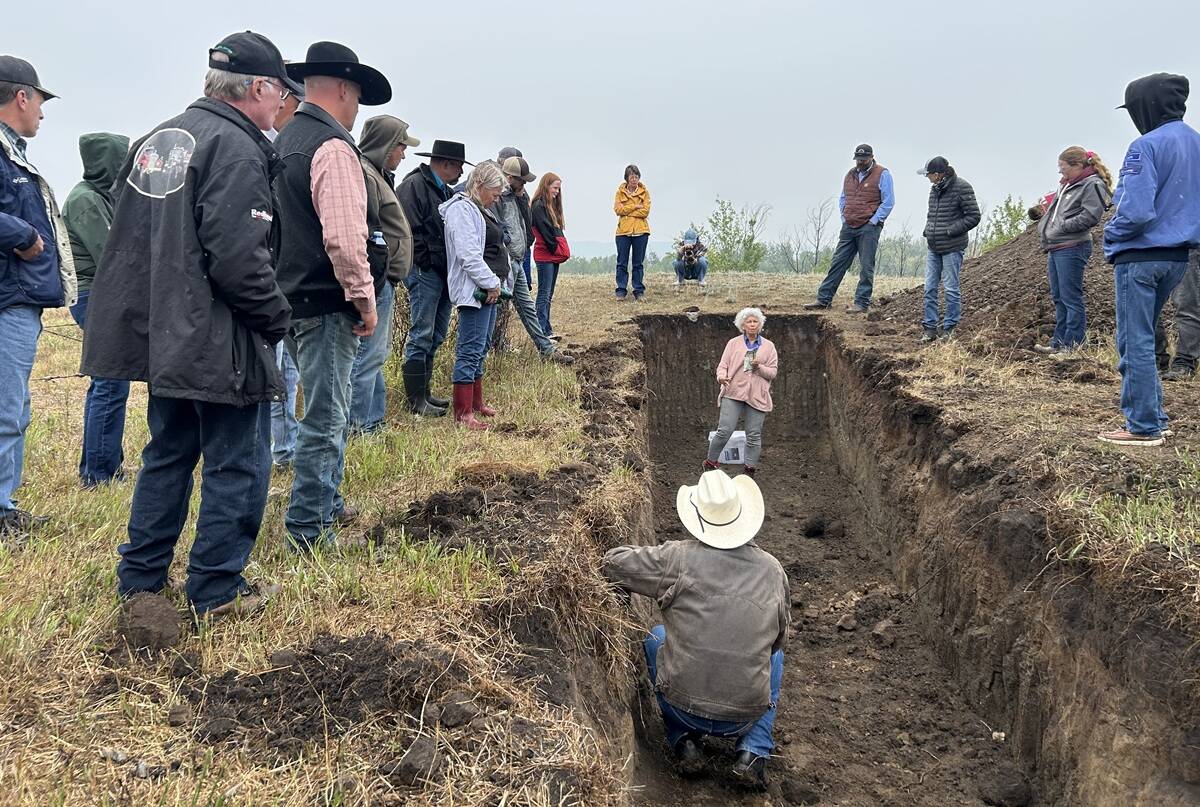
Improving soil health on the ranch
Yamily Zavala, PhD, talks soil health for farmers and ranchers at a grazing club field day at Paradise Hill, Saskatchewan.
When I think of my own career path, one of the best decisions I ever made was to join the Alberta Farm Writers’ Association (and later the Saskatchewan association), at the urging of a colleague. The “farm writers” are made up of several regional associations, plus a national federation and even an international group, so it gives members a chance to get involved at different levels. Through the regional and national groups, I’ve learned a fair bit about board governance, running meetings and planning everything from regional media tours to national conferences. I’ve also built a strong, national network of colleagues, many of whom I consider friends. For young beef producers, there’s no shortage of equivalent industry associations offering learning and networking opportunities, in exchange for volunteer time.
Not every volunteer-powered organization is industry-focused, of course. Whatever community you call home, you can bet organizations are looking for people to help at the local curling rink, flip burgers at hockey games, or step forward for town council. In my own very small town, two local women spearheaded a multi-year fundraising campaign to purchase and install a new playground. Others regularly volunteer at the local rec centre or do things pro bono for the town, and it makes a huge difference to our quality of life out here.
Being a long-term volunteer isn’t always easy, at least in my experience, but then again, very little worth doing is easy. You can expect disagreements at board meetings. In fact, you should expect disagreements — it’s good to have different opinions and a fulsome discussion on important issues. Planning and putting on big events is stressful and time-consuming, especially if you care about doing a good job. Some people will let you down, at least some of the time. You may let other people down. Interpersonal conflicts can arise. None of that is, necessarily, a reason to quit or avoid volunteering in the first place. It’s just part of life.
But (and this is a big but) organizations cannot take volunteers for granted. Most households have two working parents these days, sometimes working more than one job each. Plus, most parents are extremely busy with extra-curricular activities, which seem to have increased tremendously in the last 20 years. Don’t assume retired folks have unlimited time to dedicate to volunteering, either. Many travel. Many are also supporting their extended families. Just because you think someone “should” volunteer doesn’t mean they agree with you or want to volunteer with whatever organization you think they should. That attitude can be counter-productive.
Organizations plagued by toxic behaviour will eventually falter if they don’t change course. Years ago, when I lived in the city, I was asked by an executive director to consider joining the board of an organization I was already volunteering with. I agreed to attend one meeting, to see what the board was like. At that meeting, a board member stood over the executive director, shouting at her. I can’t recall what he was upset about, but I do remember how he told me, at the end of the meeting, that he looked forward to “sparring” with me.
I did not join that board.
Perhaps that’s an extreme example. I hope it’s a rare occurrence. More common these days, I think, is more subtle stuff done through messaging apps between meetings, or by gossip. When word of that kind of behaviour gets around small towns or tight-knit industries, it reflects poorly on the whole organization. Most of us don’t want to spend our spare time on that kind of unproductive drama.
Much better, I think, to spend time with people who feel like they’re accomplishing something and show respect and appreciation to each other. Formally recognizing volunteers for their service makes the recipients feel appreciated and it benefits the whole group. After all, it also feels good to show appreciation, and to see someone being appreciated. Even simple things such as sending someone a card contribute to a healthy organizational culture.
Back to where we started: Canadian Western Agribition launched a new volunteer recruitment campaign this year. New volunteers who signed up before June 17 were entered in a draw for Randall King concert tickets, plus a chance to meet King (more on that in Purely Purebred in our August 2024 issue). It’s just one more example of showing volunteers they’re appreciated.
Of course, there are other fall fairs and beef shows that will be looking for volunteers this fall. It’s worth approaching them to see what opportunities they offer and think about what you can learn or gain from volunteering, as well as what you can contribute.




